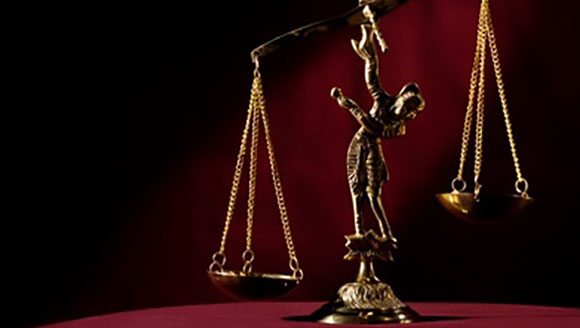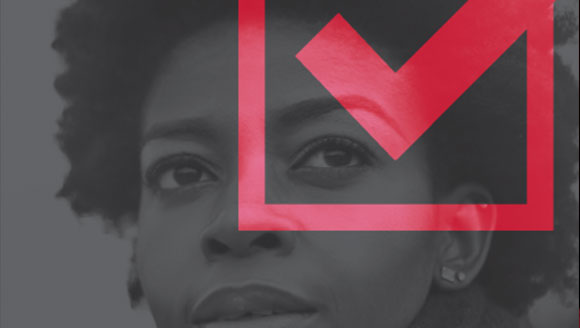To Be in That Number: Black America and the 2020 Census
On the one hand—on an almost daily basis—we are (happily) inundated with stories of the various achievements our people continue to make. Each achievement is a cause for celebration, proof of progress, and another milepost on our march to reshape history. In my own case—at 300 years young—the city of New Orleans elevated a woman to its highest office, making me the first female mayor of the Big Easy. I have often noted that while I am proud to be the first, I take greater pride in knowing that I will not be the last. There is not a day that goes by that I am not inspired by my sister-mayors in cities and towns across the country and by the leadership and example of trailblazers like Stacey Abrams and Kamala Harris.
We show up. We break barriers. And we continue to deftly navigate over society’s imposed limits. Every individual victory is embraced by the larger community. We, as Black people, have lifted up our champions and celebrated our big wins proudly—and sometimes loudly.
On the other hand, we encounter unceasing challenges; some as daunting as any we have faced in my lifetime. To quote Marc H. Morial, a former mayor of New Orleans and current president and CEO of the National Urban League: “American democracy is under serious and sustained attack.” That should be a cause for alarm for every citizen of our republic—and doubly so for Black America.
Today, there are forces within our politics and government that are actively working to silence our voice and disenfranchise us wherever—and whenever—possible. The Voting Rights Act was signed in 1965, but over five decades later we find ourselves still fighting for the right to vote. We are still having to push back on legislative agendas that seek to restrict voting rights and gerrymander Congressional districts in an attempt to isolate, dilute and ultimately silence our people’s voices at the polls.
The 2020 census is a battleground in the fight against voter suppression. When the federal government, as a matter of policy, actively seeks to discourage minority groups from filling out the census, that tells me we still have a long way to go and a big fight ahead.
The 2020 count will formally begin on April 1, 2020. It is difficult to overstate the importance of this data. Census information is used by states to redraw the boundaries of their congressional and state legislative districts in accordance with population shifts. An accurate accounting is essential to making clear-eyed and fair planning decisions regarding community services, public safety and infrastructure. The data is also used to allocate over $675 billion in federal funds to state and local governments each year. The success of the count is critical. It’s vital that we pay attention and focus on making sure it’s done right.
Without preparation and vigilance, history could repeat itself, and our people will go uncounted and, ultimately, underrepresented. That data could be wielded against us to further redraw district maps and further limit our political power.
An undercount would hurt our families and communities and curb all our hard-earned progress. This would exacerbate the already stubborn problems of poverty and housing insecurity. To be uncounted is to be unseen. Without that formal visibility, our people stand to lose.
Between 2000 and 2010, New Orleans’ response to the federal census fell by a third, from approximately 60 percent to barely 40 percent—and our City is still reeling from the punishing impact of the low count. We cannot afford to lose out again. To that end, my administration is already preparing to ensure that every resident of New Orleans is heard, seen and counted.
We are creating Complete Count committees to educate our residents on the importance of a full and accurate count, and we have engaged our regional census officials for training. Recognizing the challenges we face—and the opportunities that lie ahead—I am inviting community organizations and other local groups to partner with the City to help the Census Bureau get a complete count. I will be pushing hard with a city-wide call to action to mobilize our residents and demand that every one of our people be “in that number.”
Accurate census data makes so much of what we do possible. In New Orleans, that includes using the data to help determine how our Opportunity Zone program is implemented. My focus as mayor has to be on ensuring that the program is used as a tool of inclusionary economic development. That means being intentional about how these zones are created and making sure that investments are not concentrated in areas that are already excelling. Good decisions require good data. Without a fair and full census accounting, we cannot accurately assess need and plan interventions.
The 2020 census will be the first full census for New Orleans since our population was scattered and destabilized by Hurricane Katrina. The Big Easy has come a long way since then. Black Americans have come a long way since the first Africans stepped foot onto the colonies. If our history of struggle and resistance is prologue, our community has no intention of allowing anything to stop our progress.
To continue our march towards justice and equality, we must be visible; and our voices must be heard. This means making every effort to ensure full participation in the 2020 census to paint an accurate picture of the multi-racial America we all share.


 Equality Index
Equality Index  Senate Report
Senate Report  2020 SOBA Essays
2020 SOBA Essays  2019 Report
2019 Report 